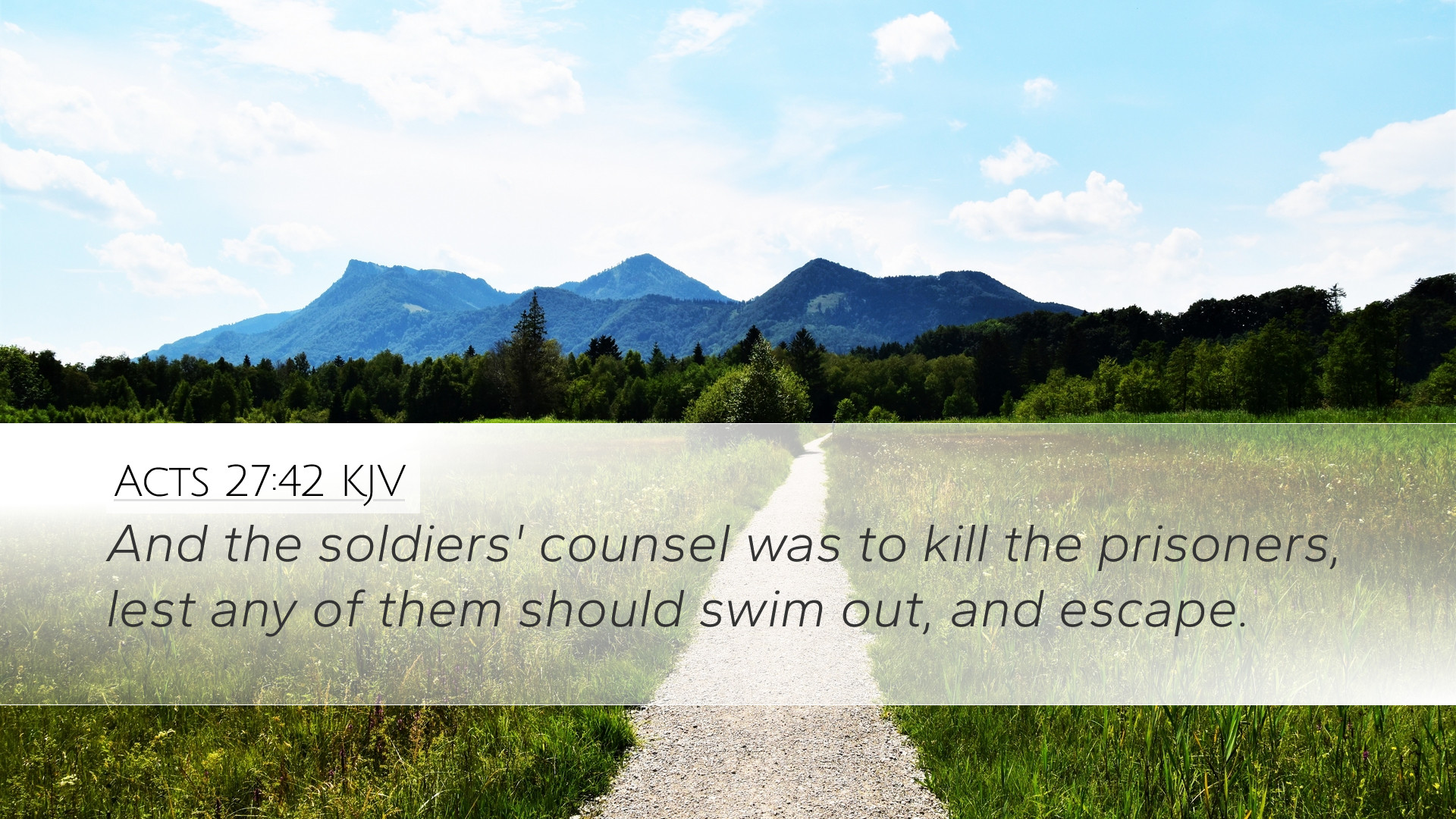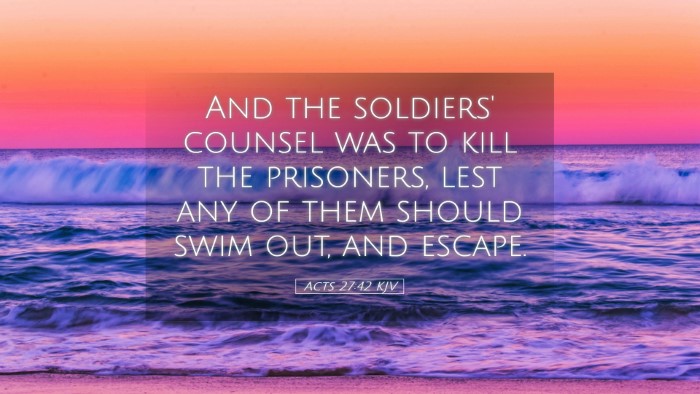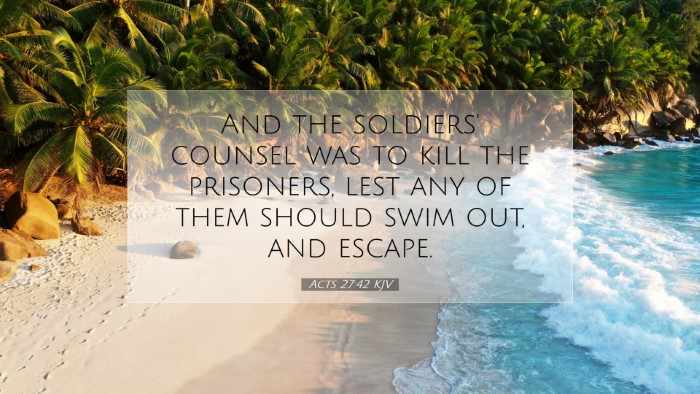Commentary on Acts 27:42
Verse (Acts 27:42): "And the soldiers' counsel was to kill the prisoners, lest any of them should swim out, and escape."
Context and Background
The Book of Acts serves as a continuation of the Gospel of Luke, documenting the early church's growth and challenges. Acts 27 recounts the apostle Paul's perilous journey to Rome as a prisoner, emphasizing themes of divine providence and human interaction amid dire circumstances.
This verse falls within the narrative of a shipwreck experienced by Paul and others aboard, offering a vivid illustration of the tensions between military protocol and divine intervention.
Insights from Matthew Henry
Matthew Henry elucidates this moment by reflecting on the soldiers' fear of losing their prisoners. He describes their intent to kill the prisoners as a common practice in ancient times, aimed at preventing escape. According to Henry, this reveals the natural instinct for self-preservation among the soldiers, prioritizing their own safety over the lives of those they were guarding.
Henry also highlights how this act stands in stark contrast to the providence demonstrated through Paul’s assurances earlier in the chapter that not a soul would be lost. He asserts that God’s purposes prevail despite human authority’s designs, illustrating God's sovereign protection over His servants.
Albert Barnes’ Commentary
Albert Barnes offers a detailed exploration of the motivations behind the soldiers’ advice. He points out that the desire to execute the prisoners stemmed from the Roman practice of executing guards if their charges escaped. Thus, their counsel reflects not only fear but also adherence to the law of their time.
Barnes comments on the irony present in this situation: the very individuals seeking to enforce their own judgments and laws are ironically under the authority of divine will. Despite their intention, God’s plan remains intact, as evident in the unfolding narrative where Paul’s life is spared.
Moreover, Barnes underscores the importance of the character of the figure of Paul. He considers how Paul's faith and confidence in God serve as a contrast to the soldiers’ actions, illuminating the theme of faith versus fear.
Perspectives from Adam Clarke
Adam Clarke provides a more nuanced understanding of this situation, emphasizing the role of leadership and the potential moral implications of the soldiers’ decision. Clarke notes that the advice to kill the prisoners was not a universally shared sentiment among the crew, hinting at divisions in leadership and the weight of individual responsibility within the group.
He notes that the soldiers' decision illustrates the desperate circumstances of survival in a crisis, suggesting a commentary on human nature and the instinctual drive for self-preservation. Clarke ties this back to a broader theological reflection on sin and redemption, highlighting how similar choices are often made in moments of fear and uncertainty without reliance on God.
Theological Reflections
This verse invites pastors, students, and theologians to delve into the rich interplay of divine sovereignty and human choice. The proposed execution of the prisoners raises ethical dilemmas that can be explored in light of modern moral theology.
It illustrates the tension between human authority and divine will, encouraging a remembrance of God’s ultimate plans, which often contradict our immediate perceptions of fear and logic.
Furthermore, the passage encourages reflection on how we respond to crises. Would we act more like the fearful soldiers or hold steadfast to the promises of God as Paul did? This question reverberates through both personal faith journeys and broader community dynamics within the church.
Application for Today’s Believers
- Faith in Crisis: Believers are reminded to maintain faith amidst terrifying circumstances. Paul’s peace in the storm offers a model for relying on divine assurance.
- Human Authority and Ethics: The soldiers’ actions prompt a reflection on ethical responsibilities, especially regarding authority figures and their moral decisions under pressure.
- Providence in Adversity: This moment emphasizes that no matter the human decision, God’s providence prevails, serving as a comfort to modern Christians in troubling times.
- Role of the Church: The narrative compels the church to be advocates for life and mercy, reflecting Christ’s compassion in all situations, especially those involving judgment and authority.
Conclusion
The examination of Acts 27:42 through the lenses of Matthew Henry, Albert Barnes, and Adam Clarke highlights profound themes of Divine sovereignty, human fallibility, and the ethical complexities of leadership in crisis. For pastors, students, and theologians, this verse is not just about the historical account of shipwreck but serves as a poignant reminder of faith, providence, and the moral responsibilities we bear in our lives.


